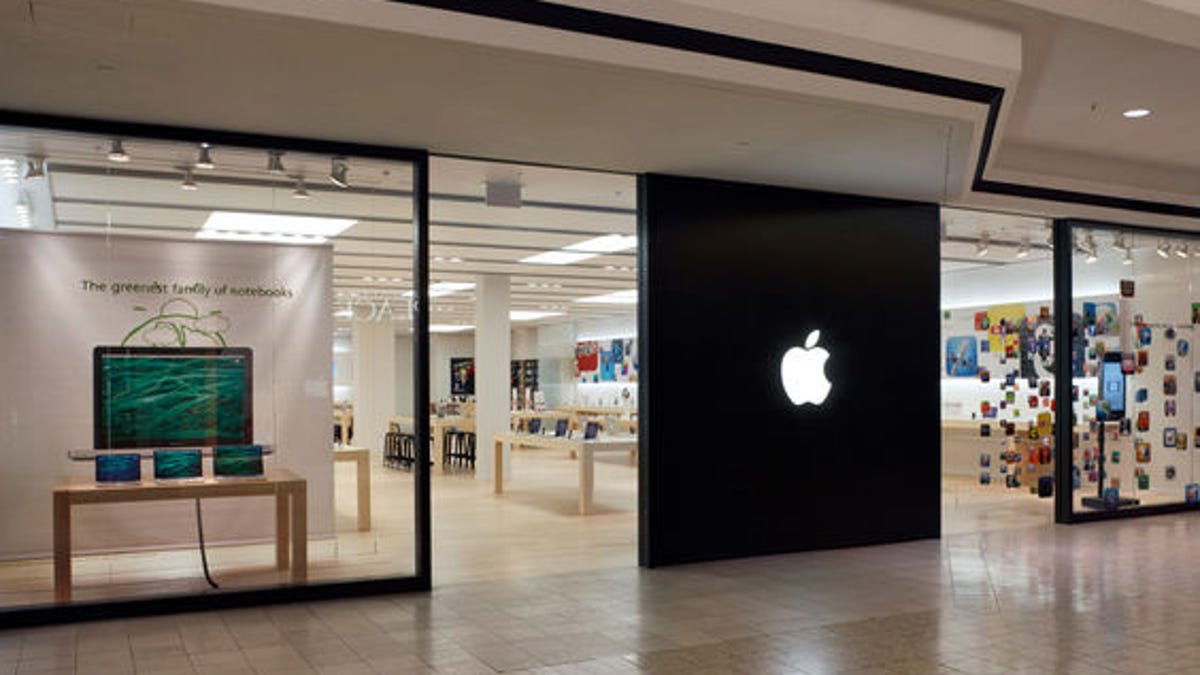How iPhone 5 sales will help City Hall
Crave's Eric Mack snooped for historic single-store sales figures on the day of iPhone launches and crunched the numbers to figure out how much of a bump the money gives to local government tax coffers.

Two weeks from today, the Apple store in Denver's Cherry Creek shopping center is likely to collect enough sales tax in just a few hours to pay the entire year's salary of one of Denver's city employees.
This assertion assumes, of course, that the iPhone 5 will go on sale across Europe and the United States on September 21 and that it will sell like... well, like an iPhone (the device sells much better than hotcakes these days).
I was curious just how much of a single-day boost all those huge lines at Apple stores on iPhone release day give to local government coffers, so I made some calls yesterday morning.
First, I called Apple's media team to see if they might offer some ballpark single-store sales figures. This seemed like the kind of feel-good local economic development story that might actually prompt a timely return call. No such luck almost 24 hours later.
Next, I called the nearest Apple store at Albuquerque (N.M.) Uptown. I tried the honest approach: "I'm a reporter interested in how much sales tax new iPhone sales could generate for the city?"
Not surprisingly, the devoted employee politely referred me to the media line at Apple HQ.
Next I called the Cherry Creek store in Denver as a potential customer interested in the new phone. I asked the friendly employee who answered the phone how quickly the store had sold out of new iPhones in the past. Usually in just a few hours, he told me. Really? How many do you have on hand that first day? About 1,500, he responded.
This is the key piece of information I needed for my investigation. Time to crunch the numbers.
The iPhone 4S has three models with varying memory capacity that run from $199 to $399. So, using this same pricing structure for the time being, if the Apple Store has an equal amount of all three models and they all sell out on day one, that's $498,500 in sales done by a single mall store in one morning, and that doesn't include all the accessories many people will purchase during their visit to grab the new phone.
In the Cherry Creek shopping center and most other places in the city and county of Denver, you can expect to pay 7.72 percent sales tax. That means the sales tax collected on those 1,500 new iPhones on day one is $38,484.
According to Denver's official record of pay ranges for city employees, that's enough to cover the maximum salary for an animal care attendant, or an administrative support assistant, food service worker, laundry worker, and a number of other positions.
Of course, this isn't the whole story. Sales tax is divvied up between city and state governments, and there's also the cost of health insurance and other benefits to be considered. So in reality, for the city of Denver to collect enough tax off new iPhone sales to truly cover the cost of one employee, that store in Cherry Creek is probably going to have to restock and sell out again.
Fortunately for our hypothetical municipal employee, the nice gentleman I spoke to at the Apple store told me they could easily sell 10,000 units of a new iPhone in the first week. At an average retail price of $299, that's just short of 3 million dollars in sales with more than $230,000 in sales tax tacked on.
That should be enough to keep a few Denver cops on the street -- and maybe they'll even be a little lenient with the folks camping out outside the Apple store in Cherry Creek.

